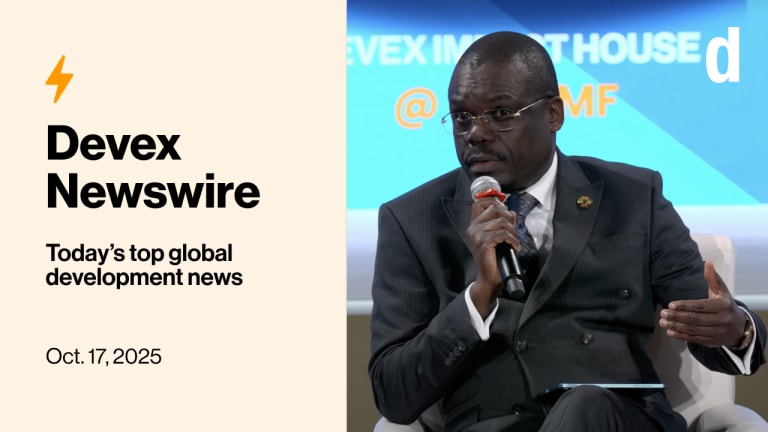‘Billions to trillions’ fatigue sets in among top finance leaders
At a recent high-level discussion on development finance, panelists from Citi, the Gates Foundation, and the World Bank acknowledged what many in the field have quietly admitted for years: The long-heralded “billions to trillions” ambition to mobilize private capital for development hasn’t delivered.
“I walked away from [last month’s United Nations General Assembly] thinking there’s so much fatigue around private capital mobilization,” said Stephanie von Friedeburg, managing director and global head of public sector at Citi, during a Devex Impact House event on the sidelines of the World Bank and International Monetary Fund annual meetings. “I think we have to go back to the basics. We have to crawl, we have to walk, and then we have to run.”
Panelists, which also included Guangzhe Chen, the vice president for infrastructure at the World Bank, and Kalpana Kochhar, the director of development policy and finance at the Gates Foundation, agreed that while private capital is indispensable to meet global development and climate goals, mobilizing it requires confronting the structural and regulatory constraints.
Search for articles
Most Read
- 1
- 2
- 3
- 4
- 5








